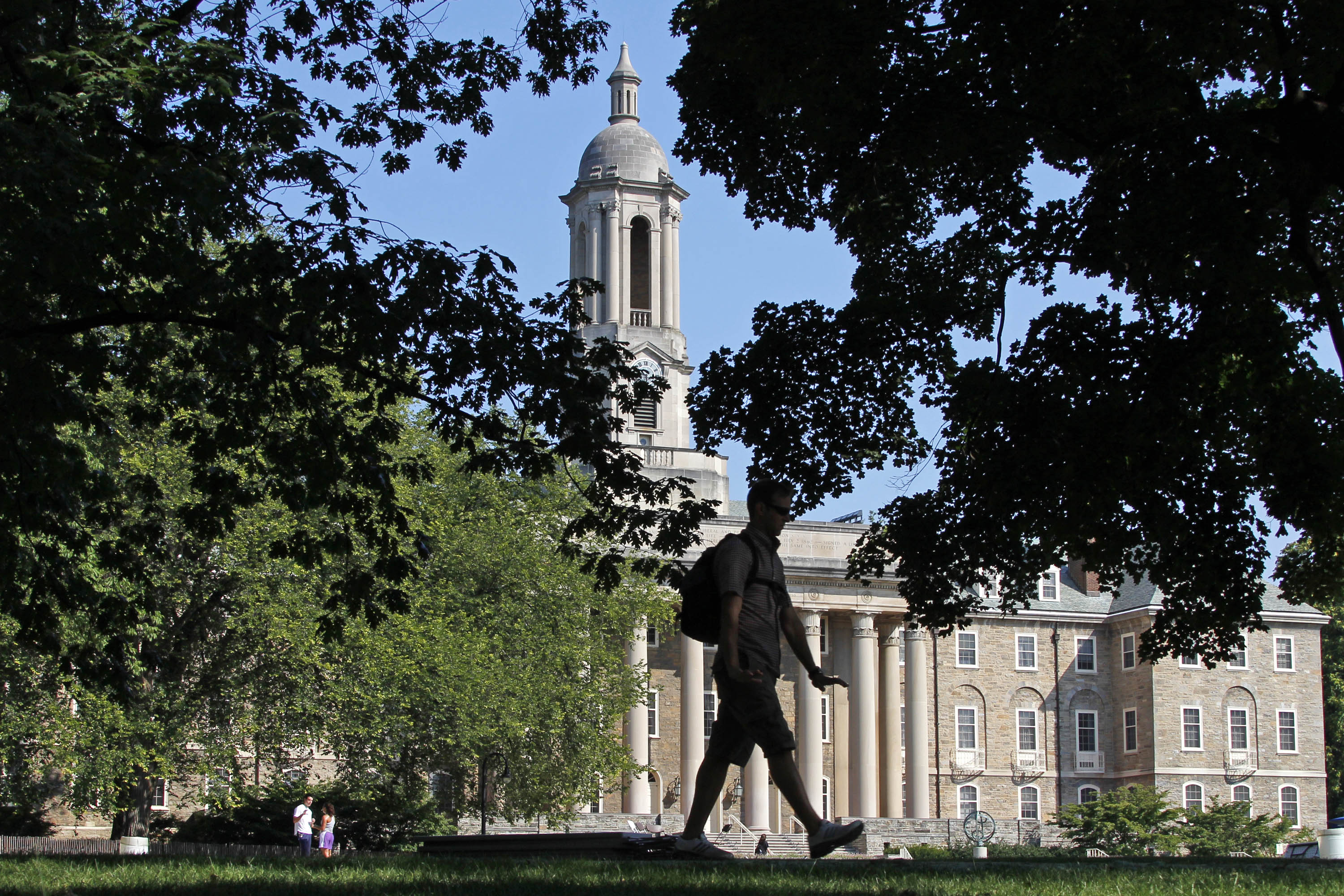By MARK SCOLFORO
Associated Press
STATE COLLEGE, Pa. - One major Penn State donor says he might write the university out of his will, while others say neither the Jerry Sandusky child molestation scandal nor recent unpopular actions by the university's leadership are making them rethink their financial support for the school.
But how those issues resonate with alumni and other financial supporters - groups whose philanthropy has sparked a building boom on campus in recent years - could have repercussions for decades to come.
The university says it's too soon to gauge the effect on fundraising of the recent decisions to tear down Joe Paterno's statue and acquiesce to severe NCAA penalties, but there are signs of discontent.
"I happen to believe that giving money to this particular board of trustees and this particular president is flushing it down the toilet," said Chicago venture capitalist George Middlemas, a $10 million-plus donor and Joe Paterno loyalist since they met in the 1960s. "The university says, 'Well, our contributions are up.' That's because people are fulfilling their pledges, but they're not going to offer any new pledges, as far as I can tell."
Middlemas said this week he had plans to donate 50 percent of his residual net worth to Penn State after he died, but was reconsidering that decision.
"The longer these bozos stay in their position, the easier it's going to be for me to sign the paperwork that's in process right now," he said.
Super donor Lloyd Huck, a retired Merck & Co. chairman and former president of the school's trustees, called the scandal "a terrible situation," but he sees it as confined to several people and not something that will cause him to halt his contributions, which at last count totaled more than $40 million.
"It has not changed my attitude towards the university itself," Huck said. "It's still a great institution."
Bob Capretto, an Oakmont, Pa., real estate investor and donor who played defensive back on Paterno's first team, isn't satisfied with a recent report conducted by former FBI Director Louis Freeh but said that won't stop him from giving in the future. He said Paterno wouldn't want that.
"I think that would be knee-jerk and I think it would be temporary," Capretto said.
State College developer Galen Dreibelbis, listed among Penn State's $5 million-plus donors, said he hasn't decided if his philanthropy will continue, but either way, he does not want any of his money being used to pay a $60 million fine imposed by the NCAA.
"I'm going to do what the NCAA didn't do," Dreibelbis said. "I'm going to wait to see all the things that happened, and see what the clear effect of this (is), and then I'll evaluate for myself."
Penn State announced earlier this month that its $2 billion For the Future campaign, set to conclude in 2014, has reached $1.6 billion ahead of schedule, and that it had received $209 million over the previous year, the second-highest total in its history.
Ira Stolzer, a retired Hallmark Cards Inc. marketing executive and a member of the university's national championship gymnastics team in the 1970s, has been active in fundraising among former Penn State athletes as part of the campaign.
"I can tell you I've been on the phone nonstop for a week, and the single theme is: how can we help?" said Stolzer, who lives in Kansas City, Kan.
Some alumni are considering a court challenge to the NCAA sanctions, although their legal standing isn't clear. Penn Staters for Responsible Stewardship, a group critical of the trustees formed in the wake of Sandusky's scandal, is pursuing what it calls an "exploration of legal recourse."
On Friday, the Penn State Alumni Association's executive board sent an email addressing the scandal that asked its members to act to "shore up our university and restore our reputation" by volunteering with and donating to child abuse prevention and Penn State-related organizations, by becoming more active on campus, and to "communicate and tell our story."
The experience at some other schools suggests the steady drip of bad news may not translate into a significant drop in support.
Last year, after allegations arose that a University of Miami booster had for years treated football players and recruits to nightclub outings, dinners and trips to strip clubs, the school continued to raise money aggressively, and was well on the way to reaching a $1.6 billion goal.
After the University of Alabama was penalized by the NCAA in 2002 for recruiting violations, it received $24 million for athletic department facility upgrades.
